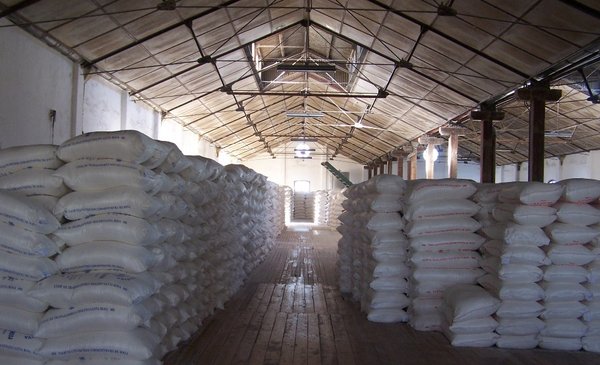“This is a tsunami for the baked goods industry, nobody expected it”he said Thursday to The Observer the president of the Industrial Chamber of Packaged Foods (Ciali), Juan Pedro Flores. The scenario of sharp rises in international prices after the start of the war in Ukraine has generated concern in the union that brings together a large part of the country’s food processing industries.
Flores said that to the increase in costs in key inputs such as flour, oil and fats, we must add those derived from the increase in oil prices that are reflected in packaging and energy. “It is having an important impact and it must be transferred to prices”, said. For example, it is expected that in the next few hours the mills will communicate the new prices of the raw materials they sell to each of the factories, as they already did to the bakeries.
In this context, Ciali will meet this Friday with the Director of Commercial Policy Consulting of the Ministry of Economy and Finance, Juan Labraga. In that meeting, requested by the union, two issues will initially be addressed. On the one hand, The businessmen will raise their concerns about whether the government plans to take any measure to “mitigate” the impact that the increase in the price of wheat and other inputs may have on the domestic market.
According to Flores, To be able to think about maintaining the price of some basic products, one must first find a way to “maintain the price of the flour” that the industries buy and then elaborate.
“The effort is always made by the industries that are already quite punished. The entire chain would have to do it, let the producer do it, let the mill do it, and the supermarkets too, because they don’t lower the margins, which is another thing that we all have to do together to help in this situation. So complex,” he said. Ciali brings together some 100 companies from different food sectors.
Argentina’s subsidized wheat
Another point that worries the industrialists is the trust recently implemented by the Argentine government to intervene in the price of wheat. Its goal is to sell 800,000 tons of cereal to the domestic market at US$114 a ton, to expand supply and regulate the price, which then affects basic foods such as dry noodles and 000 flour.
“Unfortunately, these products are later imported in cookies and in everything else with a much lower value. It already affects our productivity (…) In this case, since what is happening is something so extraordinary, I don’t know if the government will have to intervene in some way, or impose strong specific duties (on what is manufactured) with that wheat in Argentina, or take some similar measure to the Uruguayan domestic market”, said the executive.
Wheat, which reached a historical record of $491 per tonne on the Chicago benchmark market for the May contract, moderated its rise and is currently trading on a $399 per ton. It had been 9 days since the price of cereal fell below the $400 mark.
On the other hand, the president of the Uruguayan Chamber of Industries, Alfredo Antía, told El País on Thursday that “a depressed exchange rate favors importers”, so “a perfect storm is brewingwhich makes the situation of the food industry very difficult, particularly of the baked goods”, and the “uncertainty of what the replacement prices will be”.

















